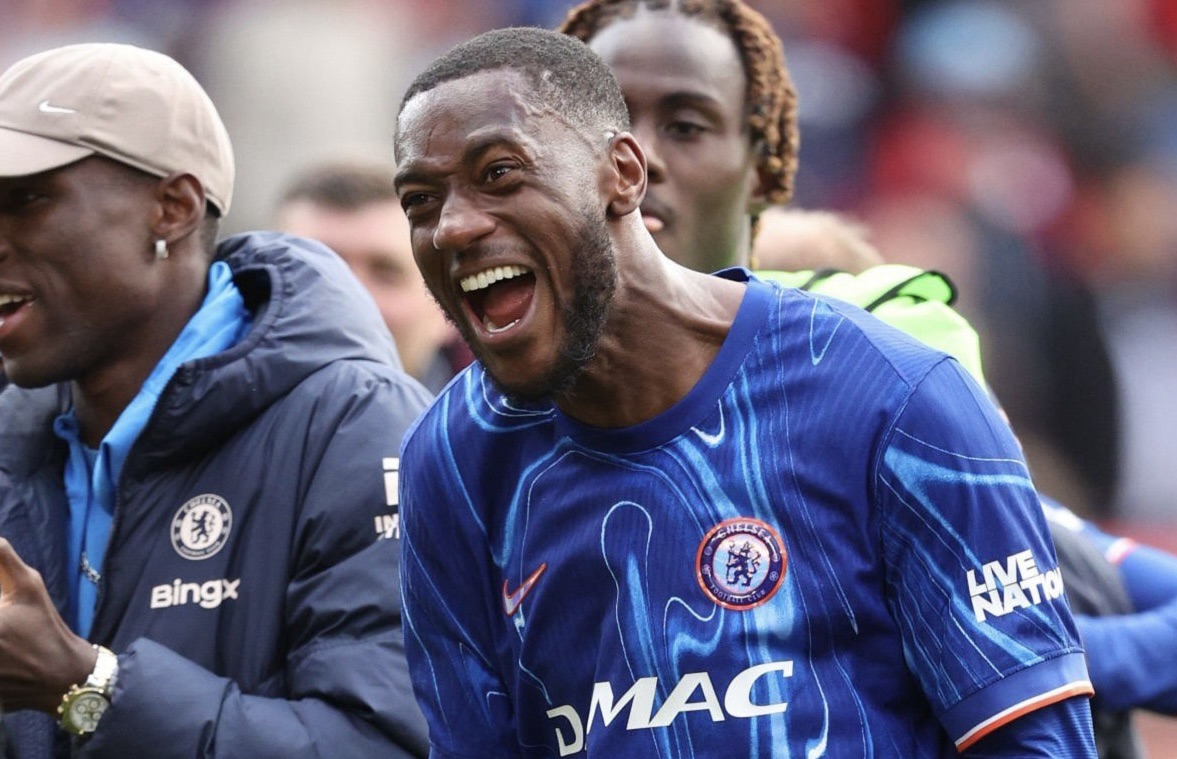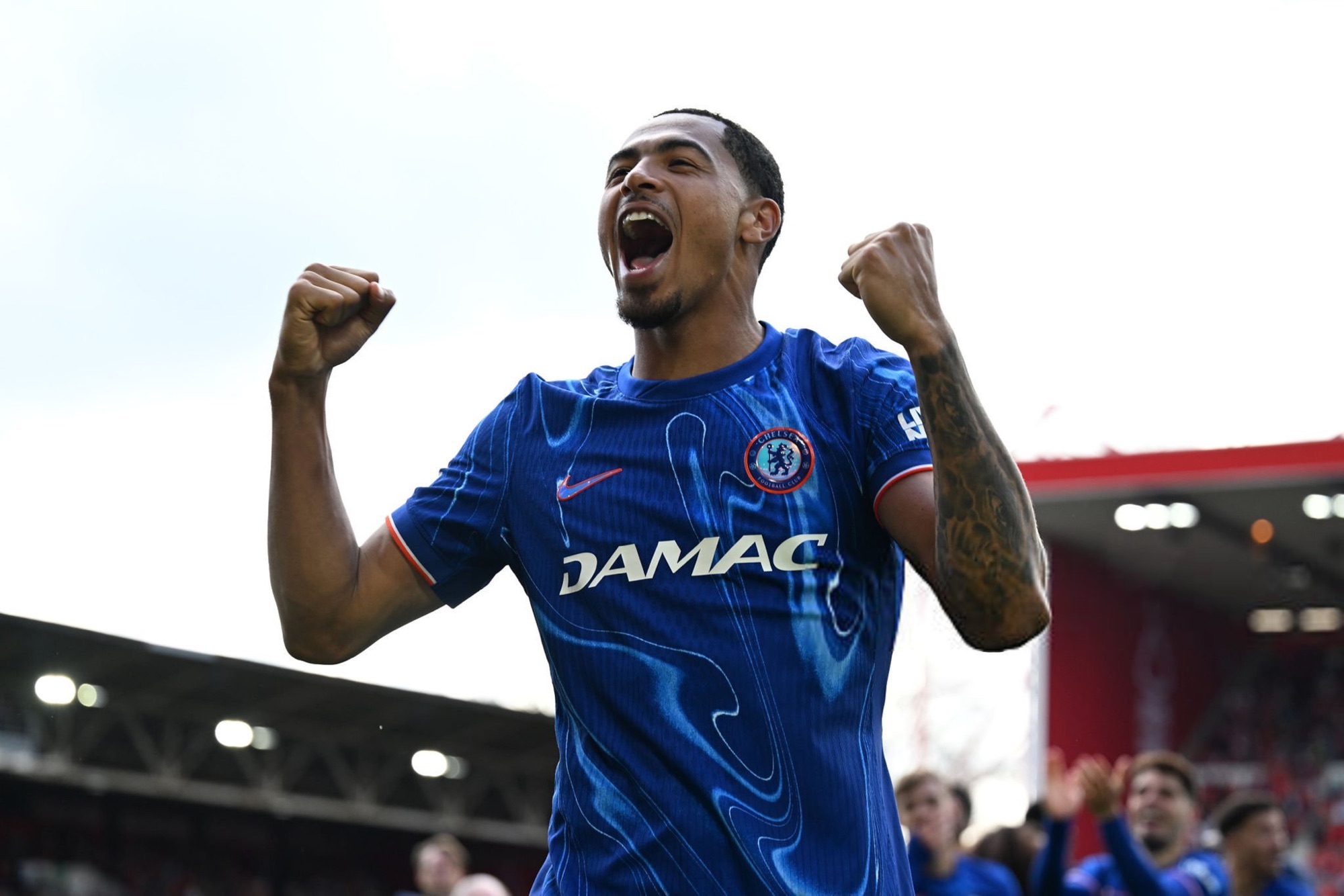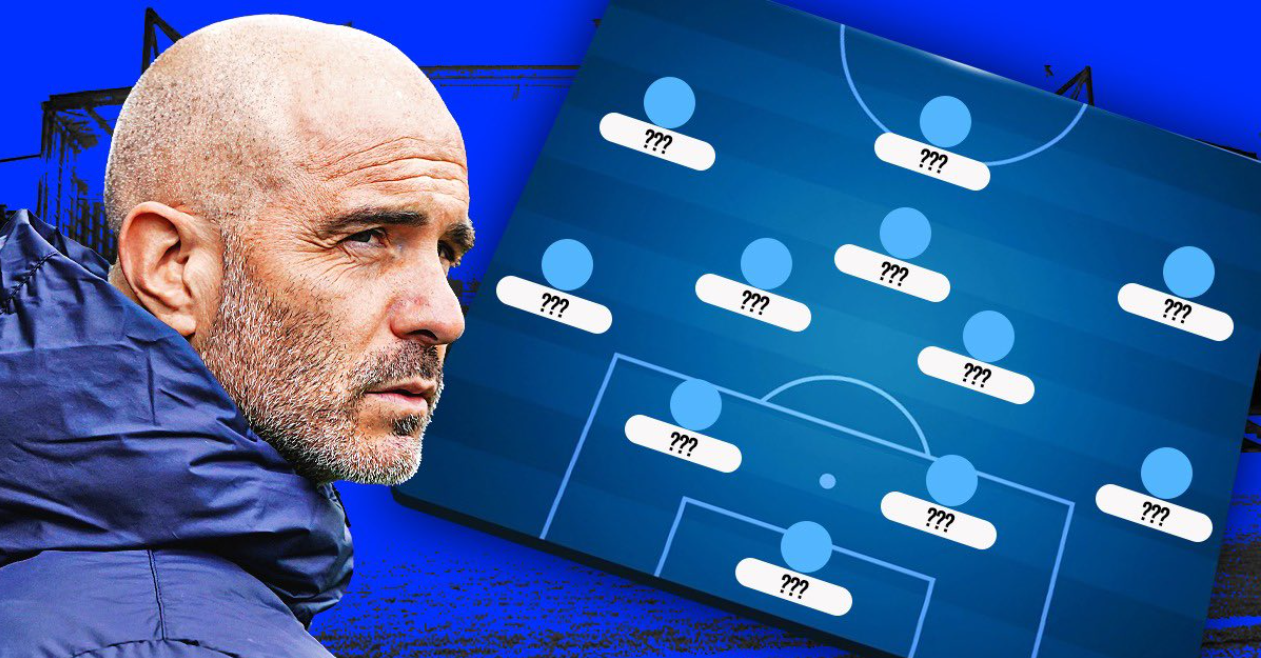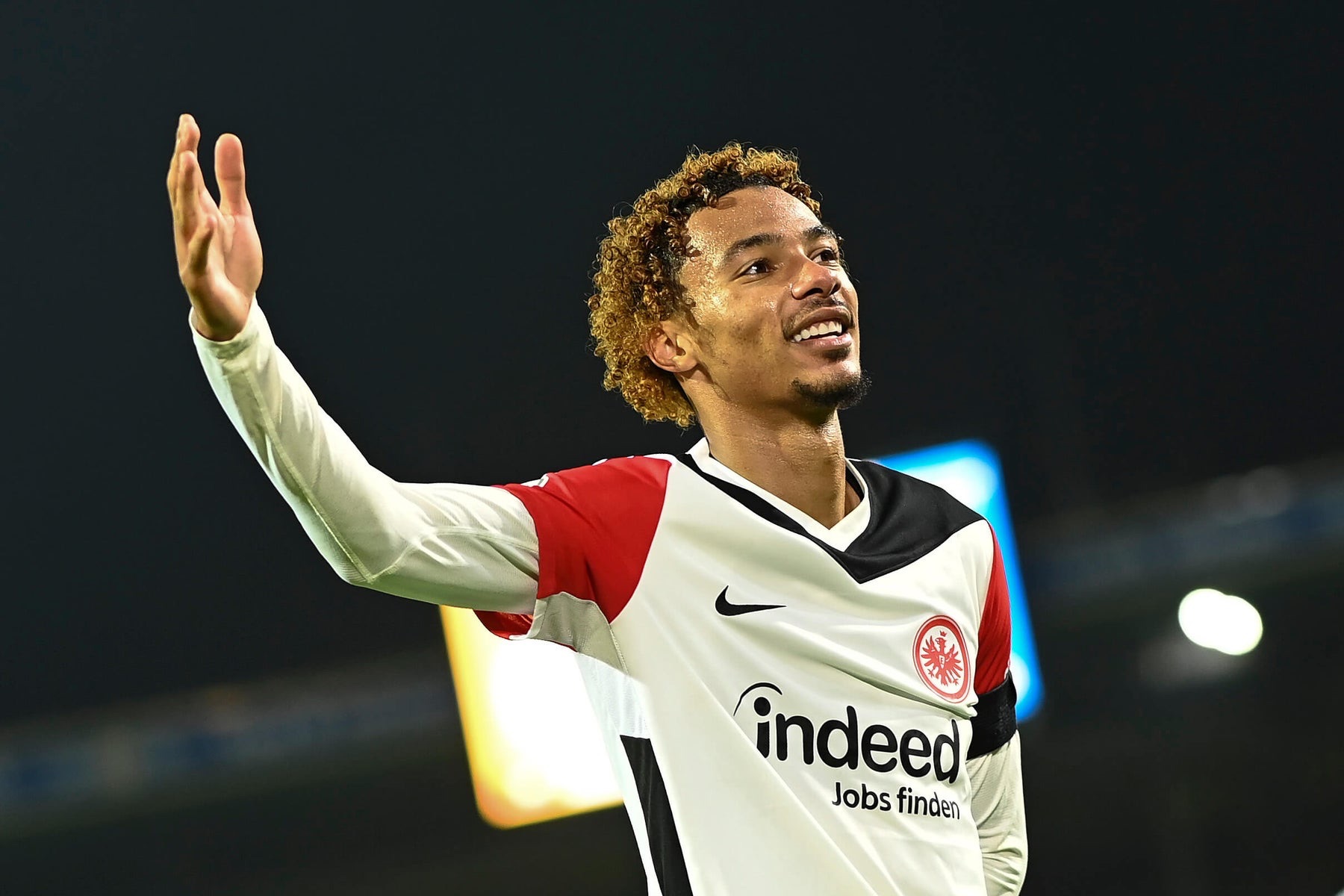A new year spells a new swathe of selection woes for Mauricio Pochettino. Whether you like him as a player or not, Nicholas Jackson has thus far done a frustrating but ultimately fruitful job leading the line for Chelsea since August.
However, the Senegalese striker is unavailable for most of January due to being called up by his nation for the Africa Cup of Nations tournament.
Some Chelsea fans were even celebrating this fact online, due to their perceptions of Jackson as a player.
Jackson has received a lot of fair and undue criticism this season for being wasteful in front of goal.
That is undoubtedly true, Jackson has missed many big chances this season and at times has looked totally off the pace.
However more often than not he has performed well, scored goals, played with his back to goal and linked with his teammates.
Ten goal involvements in 23 games isn’t stellar, but for leading the blue’s front line (arguably the hardest job in football it seems) for the first time, he has scored a similar number of goals in the Premier League to someone like the much-adored Ollie Watkins, an established presence in the league.
Similarly, Rasmus Hojlund has scored a fraction of the goals Jackson has and received far less criticism despite being more expensive.
While Hojlund is not the benchmark for a Chelsea striker (or any striker for that matter), it adds some perspective to Jackson’s performances.
There is still much to improve for him, but the reality may be lost on the Chelsea fans who celebrated his temporary departure that he is the best out-and-out striker Stamford Bridge has right now and replacing him in the starting eleven is a tricky conundrum for Poch to solve.
Who can actually play up top for Chelsea in the meantime? Who in the squad would be the best choice for Chelsea to score as many goals as possible until Jackson’s return?
Who will work well with Poch’s tactics in that position and who may make a surprise impact?

The first obvious answer is Christopher Nkunku, or it was until his recent injury setback. Nkunku has played as a lone striker or a false nine in his Leipzig days and would do a job up top.
In an attacking sense, Nkunku is head and shoulders above the rest of the Chelsea team.
His brief appearances so far this season have displayed that and so Nkunku would be the player who you would expect to see the least drop off playing out of position.
However, this isn’t necessarily the case. At Leipzig Nkunku often shone more as a second striker, having him as a lone outlet as an out and out striker doesn’t suit him, as we saw when he came on against Luton up top.
There was no longer much of a presence up front, which Luton capitalised on in that last heart-stopping ten minutes.
Similarly, with Nkunku being Chelsea’s best attacker, it may be more prudent to play to his creative strengths, having him play further back brings more balance and allows him to affect the game in multiple stages.
Nkunku is likely to rotate into centre-forward positions regardless but leaving him alone up top could work versus some teams, but as we saw against Luton, not all teams.
Armando Broja is one of the natural number nines in the Chelsea squad, although since coming back from an ACL tear, we have (perhaps expectedly) yet to see the best of him.
He does provide more height in the team, which is crucial for set pieces and he is a threat with his head where Jackson is not.
However, Broja has largely flattered to deceive since his return and appears to have lost half a yard of pace post-ACL.
It’s up to Broja to not simply rely on his pace, but use his frame and his physicality to bully centre-backs and add that dimension to his game, because he has the build to do it.
The key issue is that Broja struggles with his back to goal and unlike Jackson and rarely shows for the ball, he often finds himself in wide areas too often and as the centre-forward, positional discipline is really important.
Two goals this season even with limited minutes is not great and he hasn’t always been able to impact games in the way that Chelsea’s other attackers can.
What Broja does have going for him is Pochettino, who has faith and patience in the Albanian.
Poch has brought Broja on as a substitute a lot this season and has often replaced Jackson positionally on the pitch when he has come on.
This shows Poch views Broja as more of an out-and-number nine and will rely on him as such.
Given Pochettino doesn’t like to change his teams principally, Broja may see his most significant run of the season this month.
He offers something different but he will need to start seriously stepping up now to fill the hole Jackson has left.

Another option at striker is Deivid Washington, the young Brazilian signed in the summer, but in truth he will only realistically see the pitch in added time or if Chelsea’s injury woes continue to worsen.
Washington is somewhat of an unknown quantity but given that he has barely seen the pitch and was one of the players to potentially go on loan after we signed him, it may indicate he’s not ready to lead the line.
He may see some substitute minutes however as he moves up the pecking order for a month.
Washington would struggle against Premier League defenders over ninety minutes and most would expect the others in this list to start over him.
He’s clearly a talented boy, but this opportunity comes too soon for him to be able to take full advantage.

Raheem Sterling could be an option as well. Sterling has played at centre-forward to varying degrees of success over the years at both Chelsea and Manchester City.
Sterling is also one of the best natural finishers in the squad and would be able to fill in as a false nine, rotating with other players to create chances.
Moving Sterling central also gives him fewer defensive duties than on the wing, where he has struggled to support his teammates this season.
However, a key issue with playing Sterling high is his height. Sterling is short and doesn’t win many aerial duels, which would limit attacking outlets and options for long balls, as well as crosses into the box.
Playing Sterling centrally would require more height on the wings and in midfield to compensate, which may result in even more oddball lineups and tactics from Pochettino himself.
It is risky therefore for Sterling to play more centrally given how it could affect the rest of the team and if it doesn’t work, or is quickly found out Chelsea will continue to struggle in front of goal.
Whilst Sterling is one of the only players senior enough to take on the responsibility of leading the line, it tactically may work against him and there will be nowhere for him to hide if he struggles, as more is expected of him due to that seniority.
Finally, with Sterling struggling with his work rate out wide, there’s no indication this would improve centrally, as the striker is vital for Pochettino’s press and is often tasked with sprinting down the oppositions’ goalkeeper.
Sterling needs to stay wide where he can drive diagonally into the box and create chances for his teammates as that is where he affects games the most.

Cole Palmer is yet another option for Chelsea. The in-form Englishman is the blue’s top scorer in the Premier League this season and has begun adding goals and assists from open play to his game.
Palmer has by and large been Chelsea’s best player this season and it is no coincidence he is also Chelsea’s best finisher.
Palmer has acted as a catalyst for Chelsea’s games, putting in man of the match performances since joining in the summer.
However, his best games have been when he operated in the right half-space as either an attacking midfielder or right-winger.
Palmer is valuable close to goal and in theory, playing him as a striker or false nine would make sense.
At six-foot-two, he is tall enough to contest and win aerial duels, he dribbles well, passes well and certainly knows how to finish, what’s not to like?
Well, a lot actually. Anyone who saw the game against Middlesborough will tell you that Palmer really struggled out of position and despite getting into several goalscoring areas, his trademark ice-cold finishing was lacking.
Whether it was the occasion, the pressure, playing out of position, or simply an off day, it showed that Palmer at centre-forward is not the slam dunk many thought it would be.
Struggling to finish chances against Championship opposition would not bode well for Palmer’s chances at striker in the Premier League.
Similarly, while Palmer is tall, he is not overly physical or strong. He has a wiry frame that allows him to change direction quickly, but he could be easily overpowered by more physical defenders when playing with his back to goal.
Similar to Nkunku, Palmer is so good that it makes more sense to play him where he will perform best in his natural position rather than shoehorning him into unfamiliar positions.
Palmer knows how to get into good positions and his intelligence for the game is clear when you see the way he moves off the ball in the attacking phase.
It could work for him at striker as a stop-gap but the team would be weaker for it overall.
A new striker could be just what Chelsea need. Another wildcard option but given that there are few perfect solutions to Pochettino’s number nine nosebleed in-house, the market may provide an answer.
Recent rumblings in the transfer rumour mill have suggested that Alexander Isak, Victor Osimhen or Evan Ferguson may move to Stamford Bridge (for a substantial fee of course).
Being able to go into the market and pick a striker who could add another dimension to Chelsea’s attack would be useful.
However, this also comes with drawbacks. This is a permanent solution to a problem that will be over when Jackson returns.
Chelsea would do well to remember that AFCON will not go on forever and recognise yet another forward in the mix could give Pochettino even more of a headache when it comes to selections in the long run and everyone is fit.
Similarly, it would be difficult to get a number nine that would take Chelsea to the next level in January and there are certainly no bargains in the winter window (other than Gary Cahill that is).
Given Chelsea already will need to sell some players to ensure the books are balanced, compounding financial issues will only make the environment more pressured.
It is an unnecessary risk to take mid-season and Chelsea would be smarter to move for a centre forward in the summer when more are available and there is a clearer picture about the squad.
The final option for Pochettino and Chelsea is to not play a striker, but to play two.
As an out-and-out striker, no single player offers what Jackson by himself can and going out to buy a replacement this month would be as costly as it would be risky.
However, whilst a single striker might be fitting a square peg in a round hole, two forwards who could support and work from each other could be a useful middle ground to strike.
Ideally this would include Nkunku and it’s unfortunate that it’s currently uncertain when he will return, as the second striker role is tailor-made for him.
Pairing Nkunku with someone like Broja would arguably get the best out of both players which could be vital when missing your starting striker.
Allowing another attacker to play off of the shoulder of the “main” striker would facilitate link-up play close to goal.
Similarly, having two attackers also delegates the pressure, making it more manageable mentally for someone like Sterling to play out of position, or Washington to get minutes.
The key downside here though is with Pochettino himself with his stubbornness.
Poch likes a lone striker supported by wingers in his system, he rarely if ever plays with two strikers.
Again, Pochettino is a man who sticks to his footballing principles and changing up the system yet again for only a month may prove counter-productive to him when considering the time, it would take to coach.
If Pochettino doesn’t see two strikers as a valuable tool to add to his repertories for the future, it would be a mistake to go forward with it in the short term.





